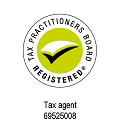When can you claim a deduction for home to work travel?
Did you know you may be entitled to claim some of the travel expenses between your home and your regular workplace, or even your alternative workplace? You can, but it is a minefield that needs to be treaded carefully so as to not end up in hot water with the Tax Man.
What constitutes a deductible 'travel expense'?
Individuals are typically able to claim a tax deduction for work-related travel expenses. As a general rule, travel from your home to your workplace is not allowed as a deduction because it constitutes a "private expense". There are however specific situations where this rule does not apply.
What you can claim
You can generally claim the cost of travelling:
- directly between two separate workplaces; for example, when you have a second job
- from your normal workplace to an alternative workplace e.g. a client's premises while still on duty and back to your normal workplace or directly home
- from your home to an alternative workplace for work purposes and then to your normal workplace or directly home
- if your home was a base of employment i.e. if you started your work at home and travelled to a workplace to continue your work for the same employer (see comments below)
- if you had shifting places of employment i.e. if you regularly worked at more than one site each day before returning home (see comments below), and
- if you need to carry bulky tools or equipment that you used for work and can't leave it at your workplace – like an extension ladder if you're a tradesperson or a cello if you're a musician.
When can you count your home as a workplace?
You cannot count your home as a workplace unless you carry out "itinerant work"; i.e. work that requires you to travel from place to place. If you do itinerant work or have shifting places of work, you can claim the cost of driving between workplaces and your home. The following factors may indicate that you do itinerant work:
- travel is a fundamental part of your work, as the very nature of your work, not just because it is convenient to you or your employer
- you have a "network" of workplaces you travel to, throughout the day
- you continually travel from one work site to another
- your home is your base of operations – you start work at home and cannot complete it until you attend at your work site
- you are often uncertain of the location of your work site
- your employer provides an allowance in recognition of your need to travel continually between different work sites and you use this allowance to pay for your travel.
Common examples of such workers would include commercial travellers and government inspectors whose homes are the base of their operations from which they travel to one of a number of locations throughout the day over a continuing period.
Typically in these cases, the employee will show up at the employer's office periodically (like once a week) to complete or file reports, pick up supplies or organise future trips. Travel from home to the office and back made in these limited circumstances will be treated as business travel, and is as a result are tax deductible.
What you can't claim
You generally can't claim the cost of travelling between work and home just because:
- you do minor work-related tasks – like picking up the mail on the way to work or home
- you have to drive between your home and your workplace more than once a day
- you are on call – for example, you are on standby duty as a locum and your employer contacts you at home to come into work
- there is no public transport near where you work
- you work outside normal business hours – for instance, shift work or overtime
- your home was a place where you ran your own business and you travelled directly to a place of work where you worked for somebody else, and
- you do some work at home.
Source Taxpayers Australia August 2014
EMAIL US
 CPA
CPA
 Tax Agent
Tax Agent
 Xero Silver Partner
Xero Silver Partner
 Tax Institute
Tax Institute
 NTAA
NTAA
 Reckon
Reckon
 MYOB
MYOB
Liability limited by a scheme approved under Professional Standards Legislation

